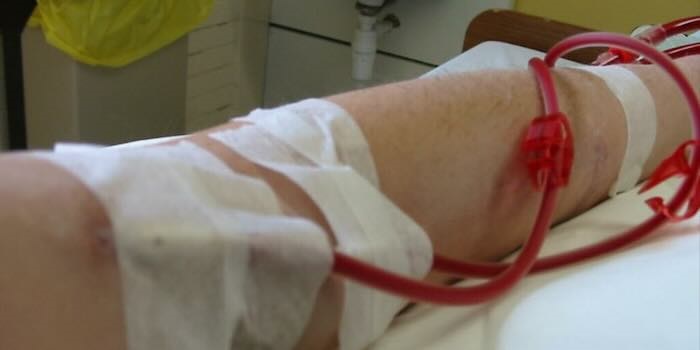By W. Gifford-Jones, MD and Diana Gifford-Jones ——Bio and Archives--April 6, 2024
Health and Medicine | CFP Comments | Reader Friendly | Subscribe | Email Us

Will humans ever learn to care for their kidneys? Or will they live to count mixed blessings – staying alive but reliant on a machine to clean the blood. This, or a kidney transplant, is the result of end-stage kidney failure.
Over 40 million North Americans are living with the precursor, chronic kidney disease. Astonishingly, nine in ten sufferers are unaware they have the problem. But the body knows, and as the disease progresses, other health problems including stroke and heart attack can result.
A dialysis machine can remove waste products and excess fluid from the blood when kidneys stop working. Dialysis patients require treatment 3 to 7 times a week, for three or more hours per session, in a hospital, clinic, or at home. Year after year, the number of people needing dialysis is increasing. Why? Because North Americans continue to abuse the kidney’s one million delicate nephrons.
We tend to think the bowel is the main disposal organ of the body. But it’s the kidneys. They’re like chemists that day after day check the balance of water by keeping it neither too acidic nor too alkaline. They also help in the production of red blood cells. Every 30 minutes, kidneys filter the body’s entire volume of blood.
What are some of the problems? A discussion years ago with the Director of the Transplant Nephrology Clinic at The John Hopkins Hospital in Baltimore was shocking. He said that five percent of all hospital patients developed acute kidney injury! He added this figure jumps to 23 percent for those in intensive care and to 30 percent among patients scheduled for heart surgery.
Those odds should be a reminder that prevention is better than cure. But the doctor explained this was the price to pay for surgical operations and other treatments.
Many hospital procedures require invasive injections and catheters before and after surgery. Doctors and the nursing staff know the dangers of infection. Often it’s a roll of the dice that determines the outcome. Hospitals are dangerous environments.
What about lifestyle? Do you have “Pillitis”? It’s the terrible folly of so many people who cannot stand even a little headache or sniffle. They mindlessly pop a “minor painkiller”. Those pills eventually take their toll on nephrons that clear waste products from the blood.
The worst offenders are the nonsteroidal anti-inflammatory drugs such as ibuprofen (Advil or Motrin) and naproxen (Aleve). Don’t believe big pharma that there’s no need to put up with pain. But don’t swallow this nonsense. Your purchases are great for their profits. Some headaches can be cured by placing a cool cloth on the forehead and relaxing.
Other huge problems are getting worse year after year. About half of North Americans are obese. Obesity contributes to 95 percent of type 2 diabetes. Obesity and diabetes combine to trigger further health problems for an increasing number of people, including diseased kidneys that require kidney dialysis machines.
It’s depressing to see people destroying healthy kidneys with often needless medication. The other tragedy is that many people have no idea this is happening. But there does come a time when kidney failure becomes quite apparent. That’s when the need for a kidney machine becomes crystal clear. Transplants are more common now, but the operation is no less of a risk.
Nocturnal dialysis allows patients to receive treatment while they sleep. While this helps some to work during the day or care for children, it also requires trained nurses to stay up at night monitoring these individuals, either in person or remotely. More mixed blessings?
Sign-up at www.docgiff.com to receive our weekly e-newsletter. For comments, contact-us@docgiff.com. Follow us on Instagram @docgiff and @diana_gifford_jones.
View Comments
W. Gifford-Jones, MD is the pen name of Dr. Ken Walker, graduate of Harvard Medical School. Diana Gifford-Jones is his daughter, a graduate of Harvard Kennedy School. Their latest book, “No Nonsense Health” is available at: Docgiff.com
Sign-up at DocGiff to receive our weekly e-newsletter. For comments, .(JavaScript must be enabled to view this email address). Follow our new Instagram accounts, @docgiff and @diana_gifford_jones
.